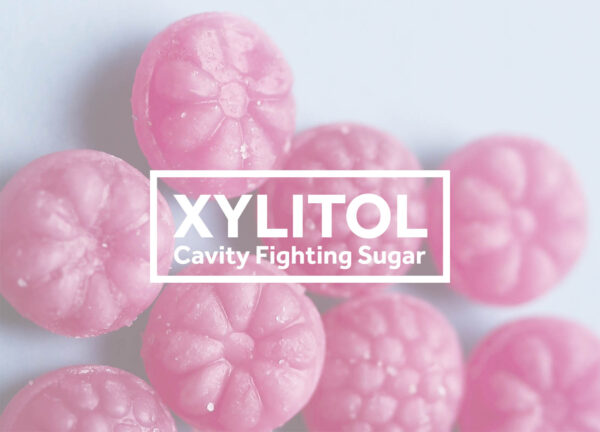What is Xylitol?
Xylitol is a type of sugar and can be found in berries, oat, vegetables, etc. Xylitol is shown to reduce cavities and can be beneficial for people with diabetes since it has a low glycemic index and does not spike the blood sugar level.
Why is Xylitol Good for Teeth?
It is a non-fermentable sugar alcohol. The word alcohol only refers to the structure of sugar (five carbon sugar) and does not have properties of alcoholic drinks. Other sugars such as glucose is a six-carbon sugar. Cavity is caused by bacteria that use sugar to form acid. This cavity causing bacteria cannot use xylitol as energy source. The bacteria still takes up xylitol instead of usable sugars and results in starving itself. This causes reduction on number of bacteria and reproduction. Xylitol is most effective on teeth that are erupting.
Where Can I Get Xylitol?
Most often, you can find xylitol in chewing gum. Read the ingredients and choose the ones that have xylitol listed. Many health food stores carry xylitol mints, syrup, candies, chocolate, mouthrinse, tablets, toothpaste etc. Some vitamin chewable tablets have xylitol as sweetner. Dr. John’s website offers many varieties of Xylitol based treats.
How Much Xylitol Should I Take?
American Academy of Pediatric Dentistry states that daily consumption of 3-8 grams of xylitol is required to see the cavity reduction. We do not recommend use of chewing gum, mints or hard candy for child under age of 4 due to risk of choking.
Are there any Side Effects?
Xylitol is safe when taken at the recommended dose of 3-8 grams per day. If xylitol is taken in large quantities, the most common side effects are gas and diarrhea. This is because it is a non-fermentable sugar and the bacteria in our gut can have a hard time breaking it down to usable energy.
Disclaimer: This blog entry is not endorsed or sponsored.
Dr. Ella Choi is a certified specialist in pediatric dentistry serving South Surrey, White Rock, Langley and Aldergrove in Beautiful British Columbia.
